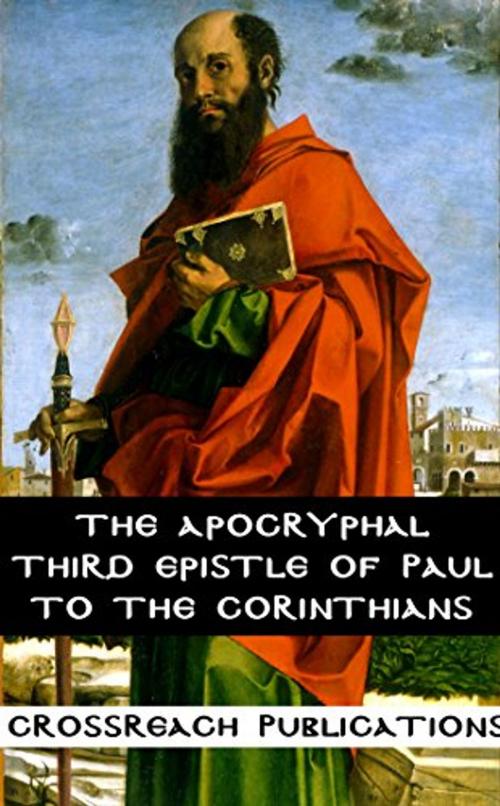The Apocryphal Third Epistle of Paul to the Corinthians
3 Corinthians
Nonfiction, Religion & Spirituality, Christianity, Christian Literature| Author: | Unknown | ISBN: | 1230001956696 |
| Publisher: | CrossReach Publications | Publication: | October 7, 2017 |
| Imprint: | Language: | English |
| Author: | Unknown |
| ISBN: | 1230001956696 |
| Publisher: | CrossReach Publications |
| Publication: | October 7, 2017 |
| Imprint: | |
| Language: | English |
This epistle, often considered one of the forgotten, forbidden or lost books of the Bible is purported to be the third of three letters to the Corinthians by the Apostle Paul. While the canonical epistles are regarded almost unanimously as genuine writings of the renowned New Testament writer, this writing is universally rejected as pseudepigraphal. In saying that it was accepted as canonical in some parts of the East at various times during the middle ages.
From the introduction:
This book, Tertullian tells us, was composed shortly before his time in honour of Paul by a presbyter of Asia, who was convicted of the imposture and degraded from his office. The date of it may therefore be about A.D. 160. The author was an orthodox Christian.
The correspondence with the Corinthians, was circulated separately in Syriac, Latin, and Armenian, and found a place in the Syriac collection of Pauline epistles (and is commented on with the rest by Ephraem the Syrian), and in the Armenian Bible. We have it in (a) many Armenian MSS., (b) in Ephraem’s commentary—only extant in Armenian, (c) in three Latin MSS., at Milan, Laon, and Paris: as well as in the Coptic MS.
We begin with a short narrative, introducing the letter of the Corinthians to Paul; then follows another short piece of narrative, extant in Armenian only; then Paul's reply, commonly called the 'Third Epistle to the Corinthians'.
There are various phrases and whole sentences, especially in the Armenian and the Milan MS. of the Latin, which are absent from the Coptic and the Laon MS. and are regarded, rightly, as interpolations. These will be distinguished by small capitals. The page of the Coptic MS. on which the correspondence begins is fragmentary at the beginning.
This epistle, often considered one of the forgotten, forbidden or lost books of the Bible is purported to be the third of three letters to the Corinthians by the Apostle Paul. While the canonical epistles are regarded almost unanimously as genuine writings of the renowned New Testament writer, this writing is universally rejected as pseudepigraphal. In saying that it was accepted as canonical in some parts of the East at various times during the middle ages.
From the introduction:
This book, Tertullian tells us, was composed shortly before his time in honour of Paul by a presbyter of Asia, who was convicted of the imposture and degraded from his office. The date of it may therefore be about A.D. 160. The author was an orthodox Christian.
The correspondence with the Corinthians, was circulated separately in Syriac, Latin, and Armenian, and found a place in the Syriac collection of Pauline epistles (and is commented on with the rest by Ephraem the Syrian), and in the Armenian Bible. We have it in (a) many Armenian MSS., (b) in Ephraem’s commentary—only extant in Armenian, (c) in three Latin MSS., at Milan, Laon, and Paris: as well as in the Coptic MS.
We begin with a short narrative, introducing the letter of the Corinthians to Paul; then follows another short piece of narrative, extant in Armenian only; then Paul's reply, commonly called the 'Third Epistle to the Corinthians'.
There are various phrases and whole sentences, especially in the Armenian and the Milan MS. of the Latin, which are absent from the Coptic and the Laon MS. and are regarded, rightly, as interpolations. These will be distinguished by small capitals. The page of the Coptic MS. on which the correspondence begins is fragmentary at the beginning.















